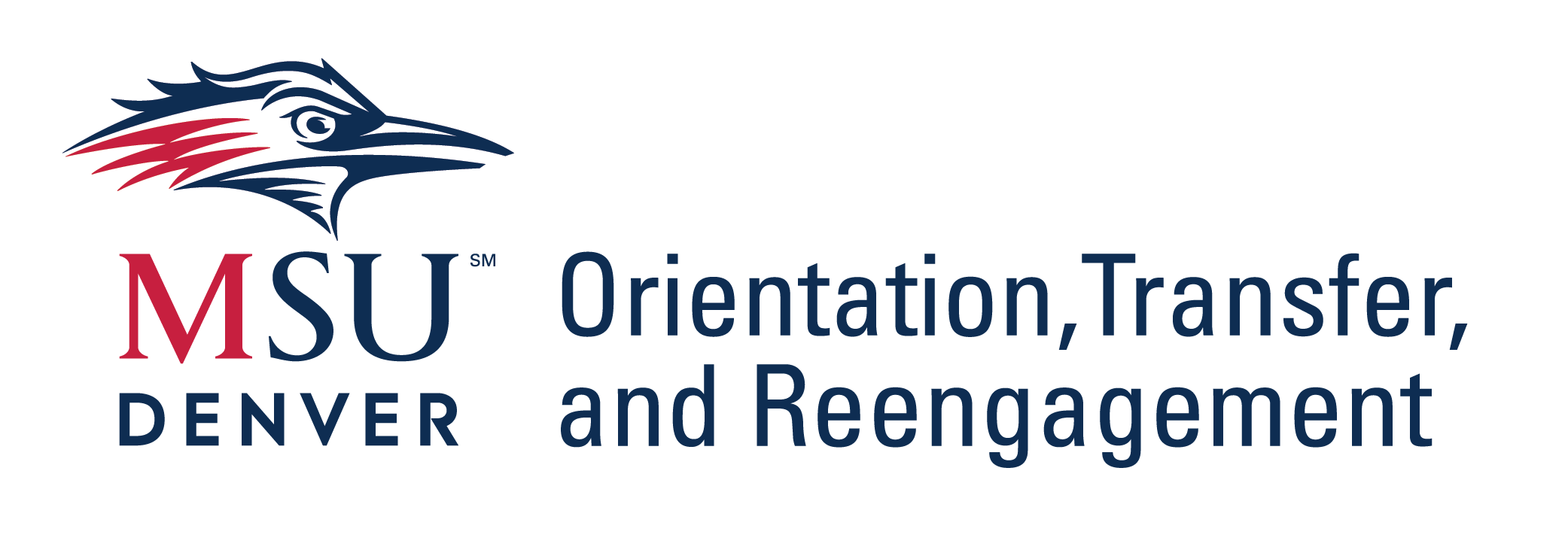There is a misconception that students enter college knowing their major and finish that degree in four years. We know that this is not the path that everyone takes. Students come into college unsure of what they want to study, decide to switch their majors once they have some experience in coursework, or after taking a break from school needing support to return to their studies. At MSU Denver, the Exploratory Advising office helps these students through a variety of resources and support.
Exploratory Major
Exploratory students explore different areas of study before officially declaring a major. These students have earned fewer than 45 credit hours and have been in college for 1-3 semesters. Exploratory students can also be students who have declared a major and are thinking about switching to a different major or a student who took time off and is now looking for the fastest path to graduation.
When Exploratory Students are unsure of what major to choose, there are a couple of factors that they should consider for narrowing down their majors of interest. These factors include personal values, career goals, likes or dislikes, and more. Exploratory students should remember to stay open-minded to different paths; through their educational career, they will develop skills that can be used in many fields. Additionally, family can be a crucial support system for Exploratory Students by understanding that even though they have not declared a major, they are still working towards their degree. Families can help by listening to students and their concerns. Students should remember that learning from faculty and alumni can help them explore and learn about career outcomes of different fields. Lastly, the Exploratory Advising office uses pathway guides to help students explore their options.
To learn about different majors’, students can use the general studies and exploratory courses to “sample” or get an idea of what different majors entail. Since a bachelor’s degree is made up of a minimum of 120 credit hours, at least 33 of which are the required general studies courses, this is the best option to explore while also fulfilling the requirements needed for a bachelor’s degree. Exploratory courses can also act as an introduction to different majors.
Exploratory Advising
The Exploratory Advising office helps exploratory students navigate this process by providing a variety of services including academic and curriculum support provided by Exploratory Advisors and information about resources and events happening on campus. In addition to the exploratory pathways, there is also an Exploration Days Fair, which brings all the departments of MSU Denver in one space so that departments can talk to students about their program. The process of being an Exploratory student can be stressful and worrisome, but the Exploratory office and advisors are here to provide support and to keep students motivated while they explore.
Career Engagement Office
The Career Engagement Office provides additional ongoing support to students as they explore careers and related majors. The Career Engagement Office provides resources and services like the careers by major database, a major and career exploration guide, personality and skill assessments, resume and cover letter workshops, and more. We highly encourage students to use these services so that they can think about how their major is going to align with their career once they graduate.
When the career engagement office meet with students, they emphasize that even though students are exploring they are still working towards their degree. When choosing a major, it’s important for students to keep in mind that there isn’t a single “best” degree; rather, they should opt for a major that corresponds with their career aspirations and post-bachelor’s plans. While majors may pave the way to certain job opportunities, every field of study holds equal significance in expanding one’s knowledge base. Additionally, there are MSU Denver alumni from all majors who have successful careers and were accepted into amazing graduate programs, regardless of their path.
If your student wants to meet with an Exploratory Advisor or learn more about any of the resources, visit their website.
Let’s continue our journey with information about how degrees are earned and how long they can take.
Knowledge Check
Test your understanding of the material on this page with the questions below. Consider your answer to each multiple choice question, then click “Check Your Answer” under each question to learn whether you were right!
- What is the role of the Exploratory Advising office at MSU Denver?
- To provide academic and curriculum support to exploratory students (students deciding what they want their major to be)
- To declare a major for the students
- To provide general studies courses
- To provide major specific courses
- Who are considered as Exploratory students at MSU Denver?
- Students who are deciding on their major and have earned fewer than 45 credit hours and have been in college for 1-3 semesters
- Students who have declared a major
- Students who have completed their degree
- Students who have earned more than 120 credit hours
- What are some of the most important factors Exploratory Students should consider when choosing a major?
- Personal values, career goals, likes or dislikes
- The number of credit hours earned /li>
- The major of their friends and family
- The availability of major specific courses
Check your answer
To provide academic and curriculum support to exploratory students (students deciding what they want their major to be)
Check your answer
Students who are deciding on their major and have earned fewer than 45 credit hours and have been in college for 1-3 semesters
Check your answer
Personal values, career goals, likes or dislikes
